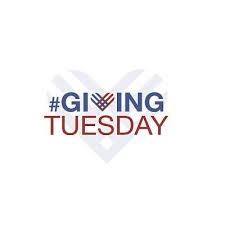 My entire paycheck depends on the generosity of others. This has been the case for the more than 15 years I have worked with InterVarsity Christian Fellowship. Each month for 15+ years, individual donors have given financially to allow me to do my job. I know. It sounds crazy on multiple levels, right?
My entire paycheck depends on the generosity of others. This has been the case for the more than 15 years I have worked with InterVarsity Christian Fellowship. Each month for 15+ years, individual donors have given financially to allow me to do my job. I know. It sounds crazy on multiple levels, right?
- Other people are giving money they have earned so that I can do a job that I love.
- In order for those people to know what I am doing and what the financial needs are, I have to invite/ask them to learn about what I do and consider giving financially.
- In order for me to be able to invite/ask others I am constantly digging deep into my heart and personal issues about money, self-worth, dependence on others, etc.
- If donations don’t come in, I don’t get paid my full salary.
- This model flies in the face of the “pull yourself up by your bootstraps” model of American opportunity because no matter what, I cannot make people give.
- AND I’m not the only one who lives this way!
So on this #givingtuesday I am giving thanks to the many, many individuals who have given not just on a Tuesday but for years and years to allow me to share the Good News of Jesus with students at Northwestern University, to train and lead the InterVarsity staff team at NU reaching so many corners of the campus, and to develop and help lead training that integrates cross-cultural skills and competencies into leadership development, evangelism and discipleship for campus staff and student leaders to more effectively reach a diverse student population in Illinois and Indiana!
One of the most encouraging gifts has been from “anonymous” every month for about a year. I have no idea who anonymous is, though selfishly I would like to know so I can thank anonymous. After 15+ years of living into #givingeveryday I am still learning the gift of giving is a gift for the giver and the receiver. Yes, there are times when I give out of guilt, and I am sure that some folks I’ve approached about giving financially to my work with InterVarsity wrestle with guilt. But that really isn’t what it is about.
My kids can be reluctant givers, but something about this time of the year brings out the very best in them. They give, much like anonymous I suppose, because they want to. They don’t have a lot of money. They are kids after all. Yet for the past few years, my youngest, Elias, money isn’t an issue. He spends generously and can’t wait for the family to open the gifts he has carefully selected for each person. He looks like he might burst with anticipation, hoping the gift will bring the recipient as much joy as it has given him to pick it out. Corban is a little older, a little more patient, but he is just as excited having asked me and Peter rather stealthily to take him out shopping without the siblings or without one of us around. Bethany is older, but just as thoughtful. The other day she asked me to take a look at the gift she had selected for Dad. She wanted to share the joy almost a month in advance with anyone who could keep a secret.
That is what is incredible about giving. The gift can be physically large or small. It can be financially costly or not. When givers like anonymous or my kids give it’s truly from the heart in a way that doesn’t allow for guilt. It only creates more space for joy and generosity.
So on this #givingtuesday take a moment to consider the various ways in which you can give joyfully.
And if you need some ideas, here are some of my personal favorites that make me giddy and excited.
International Justice Mission – an incredible human rights agency that rescues victims of slavery (yes, slavery still happens), sexual exploitation and other forms violent oppression. I learned of this organization through a family that has supported me through InterVarsity. See, giving is contagious.
Heifer International – as Korean Americans, my children also enjoy receiving additional financial gifts for New Year’s Day. We asked them to consider tithing – giving 10% or more – of their New Year’s bounty to charity, and several years ago they decided this was the charity of choice because who doesn’t love giving a water buffalo or a pig?!
Locally, I’ve been involved with Youth and Family Counseling here in Lake County, Illinois. The not-for-profit social service agency works to provide affordable mental health services. Let’s be honest. Mental health services is a trickier “need” to raise support for, but as one who is under treatment for depression because I have medical insurance I don’t and can’t take access to mental health services for granted.
And finally, there is InterVarsity Christian Fellowship. If you know someone who works for InterVarsity, consider giving to her/his staff account. If you were involved with an IVCF chapter, consider giving to the staff who are currently serving your alma mater, even if you don’t know the person. And if you are still looking for a personal connection, you know me.

